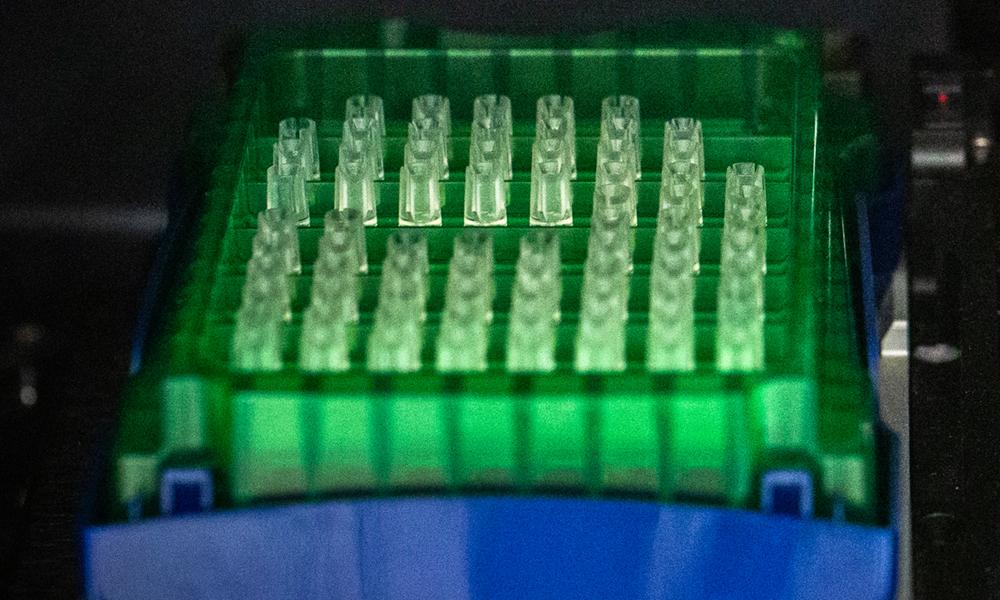Scientists at EMBL Hamburg contribute their expertise to identify nanobodies that could prevent SARS-CoV-2 from entering human cells

Scientists in the Löw group at EMBL Hamburg and their collaborators at Karolinska Institutet Stockholm aim to find synthetic antibodies - known as nanobodies - that bind to a surface protein of the novel SARS-CoV-2 coronavirus. Once bound, the nanobodies make it impossible for the coronavirus to attack human cells and cause COVID-19. The scientists will use a large library of synthetic nanobodies and a piece of a SARS-CoV-2 protein to figure out which nanobodies bind most tightly to the virus. These candidates will then be further tested. In the future, nanobodies have the potential to be used as compounds to stop SARS-CoV-2 from infecting humans, or as tools in coronavirus diagnostic tests.
For this project, scientists in the Löw group will apply their expertise in producing challenging proteins such as viral proteins and selecting nanobodies against them. Once they've identified nanobodies binding to the piece of the SARS-CoV-2 protein, they will characterise the interaction by various biophysical tools, and colleagues in Stockholm will analyse how well these nanobodies prevent coronavirus from entering cells. The Löw group will also perform structural studies to understand in molecular detail how nanobodies bind to the viral protein, using the Sample Preparation and Characterisation Facility and the X-ray crystallography and small-angle X-ray scattering beamlines in Hamburg. The use of the synthetic nanobody library, which was originally developed by collaborators in Zurich, will significantly speed up the process of identifying promising candidates.
The Sample Preparation and Characterisation Facility and beamlines are part of a wide range of structural biology services offered by EMBL on four of its sites. EMBL Grenoble and EMBL Hamburg provide support for X-ray-related experiments, in close collaboration with the European Synchrotron Radiation Facility (ESRF) in Grenoble and the German Electron Synchrotron (DESY) in Hamburg. At both sites, synchrotron beamlines are complemented by facilities for the preparation and crystallisation of biological samples. EMBL Heidelberg provides access to the Cryo-EM Service Platform, and to advanced facilities for sample preparation and data analysis. This range of services for external users will be offered from 2021 at the EMBL Imaging Centre. EMBL's European Bioinformatics Institute (EMBL-EBI) in Hinxton, UK, provides additional support through its data repositories (PDB, EMDB, and EMPIAR).






